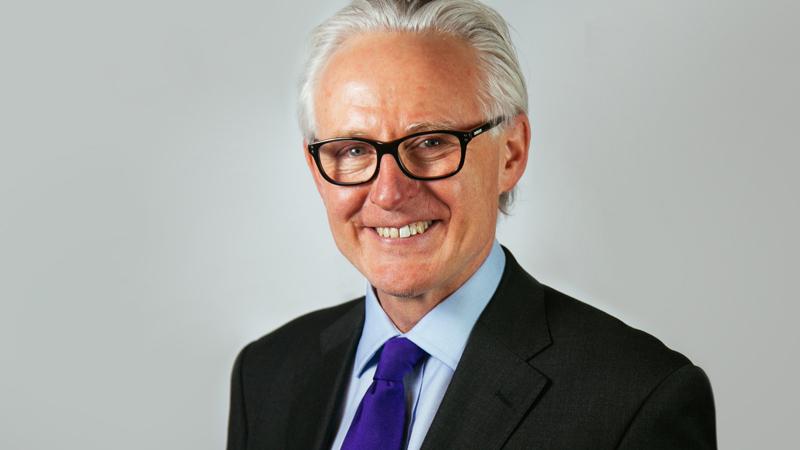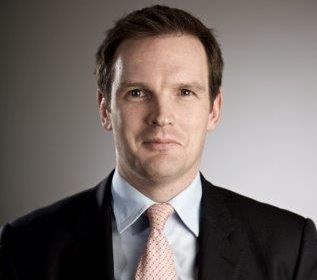Politicians made to feel heat in health debate

The Big Health Debate pitched the Conservatives, Labour and the Lib Dems against each other – and a roomful of frontline staff worried about underfunded and overstretched health and social care services. Andrew McConaghie writes the Parliamentary sketch.
Last night's election-themed Guardian Big Health Debate looked like it wasn't going to spark at first, particularly as neither health secretary Jeremy Hunt nor shadow health secretary Andy Burnham had been persuaded to take part in the head-to-head between the three main parliamentary parties.
But the future of the NHS and community care always enflames passions in the run up to elections, especially when the audience is predominantly health and social care professionals.
Standing in for Hunt was the little-known junior health minister Dr Daniel Poulter, while in Burnham's place was Liz Kendall, Shadow minister for care and older people. The Lib Dems' Norman Lamb was the most senior of the three, having played a direct albeit junior role in the coalition's tumultuous five years of health policy.
The atmosphere was subdued at first, but the temperature in the Westminster Central Hall rose quickly – literally and figuratively – and by the end the debate was most definitely heated.
Firing questions and comments at the politicians, the prevailing sentiment in the audience was one of anger at funding cuts across services, frustration caused by the Health and Social Care Act reorganisation, and rage against what many saw as a clandestine agenda to privatise the NHS.
To Norman Lamb's credit, he didn't try to play down the challenges facing the health service, saying that tackling the estimated £30 billion funding gap by 2020 was a "massive, massive challenge for whoever is in government."

Liberal Democrat health minister Norman Lamb
"The system as a whole will crash in the next parliament if we don't address this problem."
NHS England's Five Year Forward View says the health service can achieve £22 billion in efficiency savings over the period, but will still need an extra £8 billion a year to stop the NHS cracking under the pressure.
The Lib Dems have pledged to meet the £8 billion funding request - something the other two major parties have conspicuously not done. Lamb also went one further than most politicians in admitting the annual efficiency savings of 3 per cent every year were based on "some fairly heroic assumptions" adding: "this has never been achieved in the history of the NHS".
This was strangely at odds with the reading of the last five years from his Conservative counterpart Dr Daniel Poulter, who said the coalition had achieved 4 per cent efficiency saving in each year.
Despite his training as an NHS hospital doctor (he still does the occasional shift, but without pay), Dr Poulter speaks the language of Westminster and not the health service frontline, and talk of procurement practice savings and greater use of technology failed to connect with the audience.
Not surprisingly in a left-leaning audience, Labour's Liz Kendall tapped into the sentiment by talking of 'NHS values' of care and solidarity. She also berated the coalition for having "squandered" the chance to reform the NHS for good, instead foisting on it the Health and Social Care Act, with its "massive reorganisation and plethora of new bodies".
Crisis in general practice
Among the contributors from the floor were GPs, a hospital doctor, a midwife, a pharmacist and a (self proclaimed) octogenarian journalist writing under the name of 'Patient from hell'.
Among the most hotly contested subjects was general practice – which everyone agrees carries the burden of most of the country's healthcare needs, but which is suffering from underfunded and overstretched doctors.
When Norman Lamb repeatedly sang the praises of East London GP Sam Everington as a forward thinker, the cry went up that East London's general practices were in the grip of a huge funding crisis, thanks to government cuts to the minimum practice income guarantee (MPIG).
Youssef El-Gingihy, a GP practising in East London commented: "I think there is a huge gap between the [political] rhetoric and the reality. The elephant in the room is privatisation. The Health and Social Care Act clearly takes us down the road of full scale privatisation and [towards] universal health insurance."
Responding to these allegations, Dr Poulter said use of the private sector had only risen 1 per cent during the coalition's time in office, up to 7 per cent from 6 per cent under Labour, though many said this didn't tally with their experience on the ground.
The three members of parliament traded blows on just how far Labour had enshrined competition law into the NHS before the Conservatives took it one stage further with the Health and Social Care Act, the biggest ever reorganisation of the health service, and clearly loathed by the grassroots workers in attendance.
One warned that the full extent of competition and its ill-effects had yet to be seen, giving Liz Kendall the chance to play her ace card on the subject, Labour's pledge to repeal the law if it forms the next government.
The conversation turned to how new or reformed taxes could help fund health and social, such as Labour's proposed Mansion Tax.
An impassioned antipodean drugs and alcohol outreach worker from East London said his service was facing cuts, and wanted more done to clamp down on corporate tax evasion.
"Come on man, there's a lot of money being avoided here!"
Reviewing NICE's role
The event was sponsored by the pharma industry association the ABPI, but it sensibly decided to limit its input to just one prepared question: would the parties commit to a comprehensive review of NICE and its methods?
Dan Poulter gave an unsatisfactory answer, waffling about it not being a manifesto priority for the Conservatives, but his party would hold NICE to account if it wasn't acting in an 'expedient manner'.

Labour shadow health minister Liz Kendall
Liz Kendall gave a more pleasing one word response – 'Yes' – but the rest of her reply was lacklustre, suggested she also felt it wasn't a top priority.
Only Norman Lamb seemed fully engaged with the question, confirming his support for a review, and said he wanted a fix for the way mental health currently carries less weight than physical health in its cost effectiveness model.
Inputs from patient representative focused on two subjects. The first was the long-running difficulty of being able to choose where you can be registered with a GP. The second came from the aforementioned Patient from Hell, who said he was repeatedly confronted by the conservatism (with a small 'c') of doctors, who rejected fresh ideas such as new technology.
Health minister Dr Daniel Poulter
Daniel Poulter, drawing on his own experience, said one good way to overcome this was to present doctors and nurses with the evidence base, which they would respond to.
However he opened himself up to mockery from the audience, which had now found its voice, when he said: "One size fits all, top down change doesn't work."
"So ironic!" came the reply.
The mood nonetheless remained polite, despite the testimony of burnt-out GPs, services in crisis and midwives leaving the profession in their droves.
Norman Lamb was determined to emphasise reasons for optimism – most notable among these being last year's report from the Commonwealth Fund, which ranked the NHS as the world's best healthcare system, as well as the latest survey showing satisfaction with the health service from users was still high, and dissatisfaction at an all-time low.
He pointed to the transformational change in mental health service in Eastleigh, Hampshire, as just one example of improvement, but Lamb's tender words only partly placated the sentiment; NHS professionals can also be world-class at indignation when confronted with political directives.
All three MPs insisted further change was needed to keep the NHS afloat. This included greater involvement of charities and non-profit-making organisations, with the role of an 'employee stakeholder' or mutualism system being suggested as a way of ensuring healthcare professionals stayed engaged in organisational change.
Nevertheless, truly comprehensive 'big ideas' were absent – probably because of the fall-out from former health secretary Andrew Lansley's big idea, the dreaded Health and Social Care Act.
Liz Kendall risked sounding like Barack Obama when she said: "I'm not saying we have a total solution to NHS and social care."
This sort of phrase is often a display of false modesty from politicians, but on this occasion was an accurate summation for all the parties, faced as they are with the knotty and complex problems of 21 century health and social care.
About the Author:
Andrew McConaghie is pharmaphorum's managing editor, feature media.
Contact Andrew at andrew@pharmaphorum.com and follow him on Twitter.
Read more from Andrew McConaghie:
General Election 2015 and the future of the NHS
Related article












